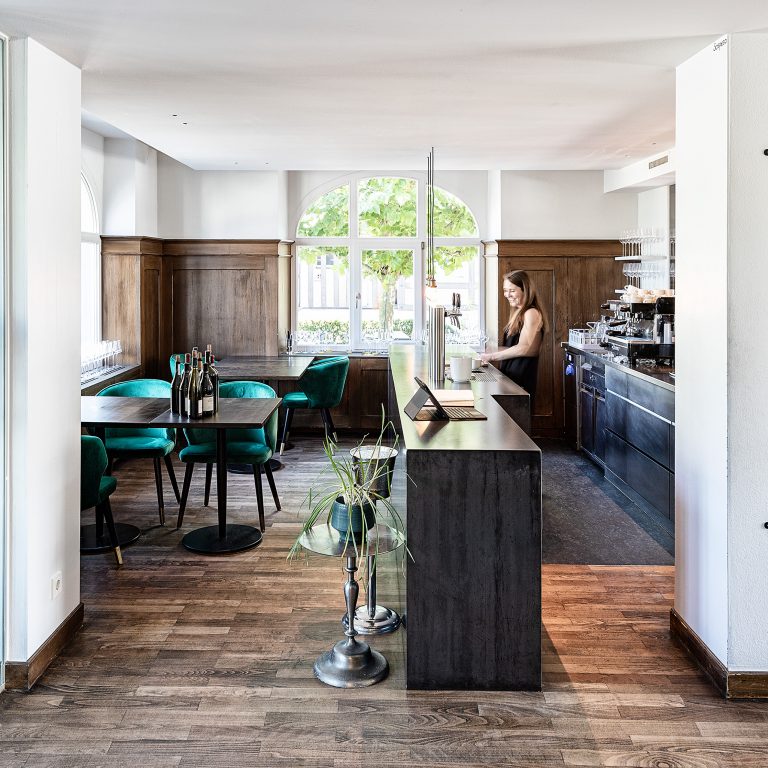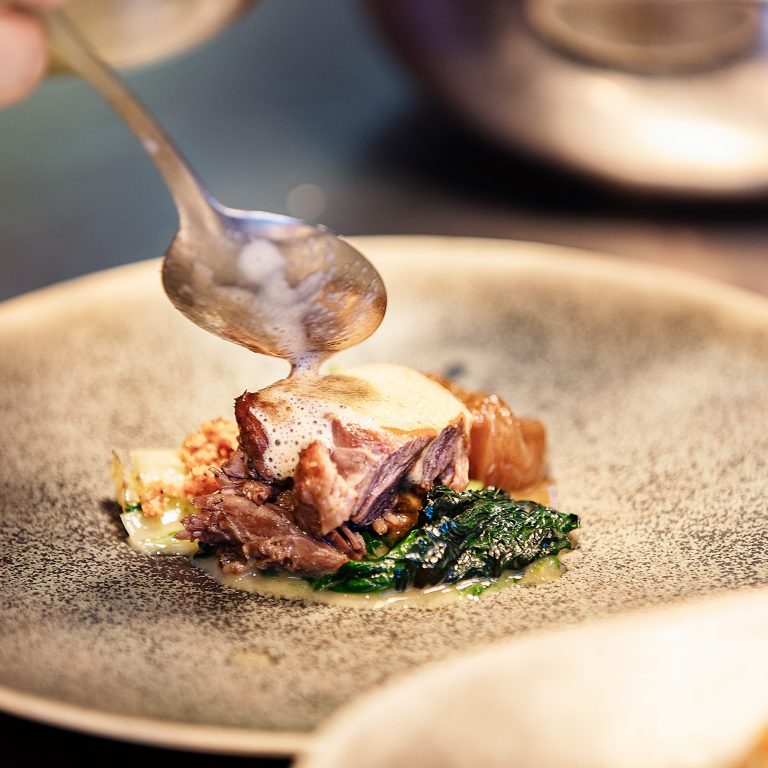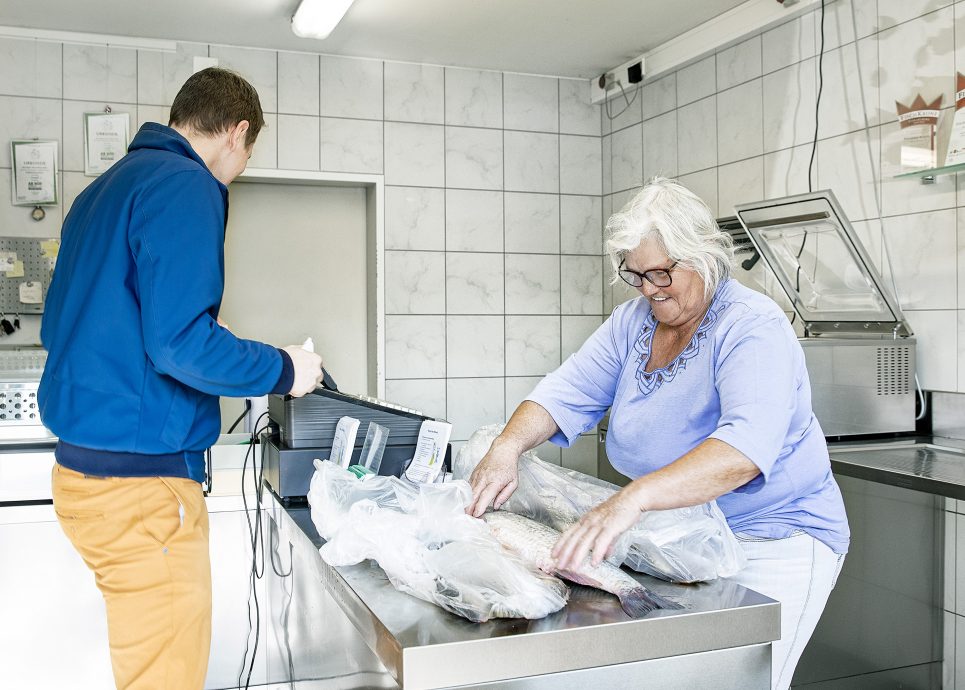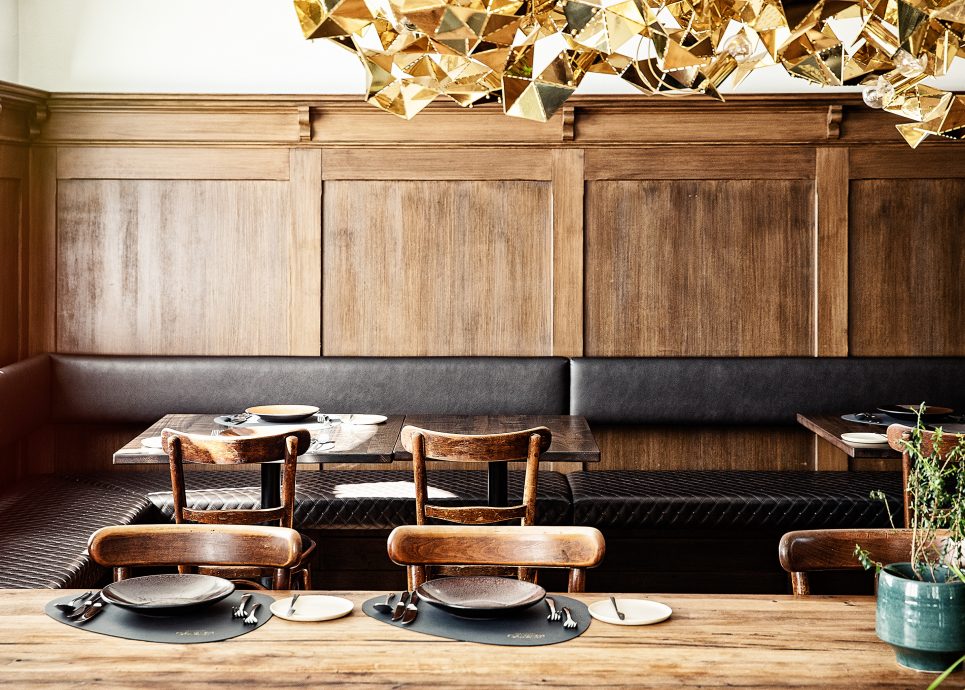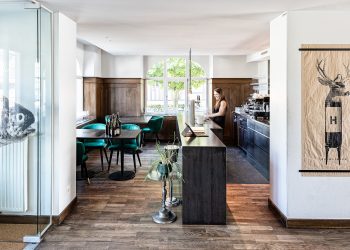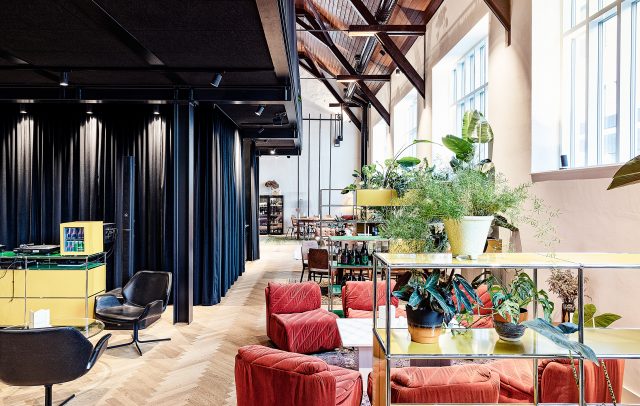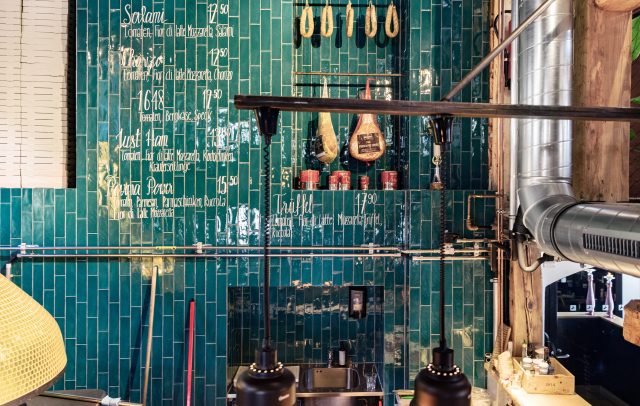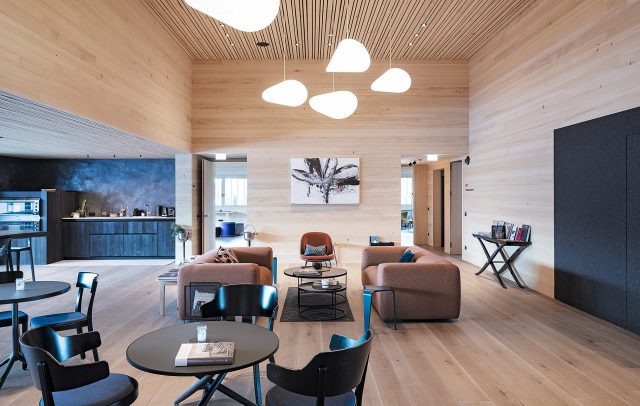Hörnlingen, Rankweil
Visionary cuisine in a traditional ambiance
TEXT: Renate Breuß and Marina Hämmerle
The Hörnlingen in Rankweil is an inn, a club and a bar all in one. Both its location on Bahnhofstraße and its historical architecture recall the railway era, while its traditional beef soup sings the praises of a legendary innkeeper for whom a lunch without soup and a Friday without pudding still constituted grave sins. Thankfully, things have changed – even in the pilgrimage town of Rankweil.
The renovation project carried out by the Marte.Marte architectural office in 2017 has set the stage for new, courageous ideas. Enter Dominic Mayer and a concept that would never work without produce of the absolute finest quality. The young chef insists on using every single part of each product he buys, from the blossom to the root, from the nose to the tail. From this wealth of ingredients, he recreates beloved dishes that had become severely endangered across Austrian inn kitchens. Their only crime was to be too labour-intensive and complicated: after all, anyone who buys a whole animal must be able to take it apart and be aware of its anatomy. Dominic Mayer understands the powerful properties hidden in the roots of wild herbs. He knows exactly for how long they must ripen and that the stem of a marigold must be handled differently from its leaves.
His approach was initially met with skepticism. These days, however, anyone who can secure a table at the Hörnlingen on a weekend can consider themselves lucky. The innovative concept was successful: aligning the menu with seasonal, market-fresh products creates unprecedented variety. Guests can choose from a six-, seven- or eight-course meal consisting of fish, meat, vegetables and dessert.
All Mayer asks of them in return is that they go with the flow and keep an open mind towards the culinary delights he serves them on his black ceramic dishes, to explore with curiosity everything that is not mapped out in detail on the menu. All questions are keenly answered: at the Hörnlingen, the chefs are not above serving their guests’ meals in person every now and then.
A clear beef broth with savoury rye biscuits, a nettle risotto with locally farmed escargots de Bourgogne, waxy quail eggs in breadcrumbs, a wafer-thin veal saddle carpaccio, a whole carp from Lake Constance served on baby spinach. Dill, lemon, Viktorsberg saffron, hempseed oil and freshly baked bread – they’re never just supporting actors. The Venetian fawn liver is an homage to the chef’s training years in Venice. It was there and in Styria that Mayer learned how to handle top-class primary products. Diners choosing the menu with a dessert instead of the various appetisers will not be disappointed: the young culinary professor pulls out all the stops in the sweets department, too.
At the Hörnlingen, guests share and sample, they sit at long tables or small ones, and they all enjoy the pleasant atmosphere of a traditional inn. The seats under the chestnut trees in the outdoor dining area are excellent spots for a chat, as are the recently added spaces in the alcoves of the vaulted cellar.
To the team at the Hörnlingen, dialogue is more than a buzzword. It is the defining aspect of all relationships, those between guests and their food as well as those between the restaurant and its suppliers, and it is always generous and free from frustrations.

